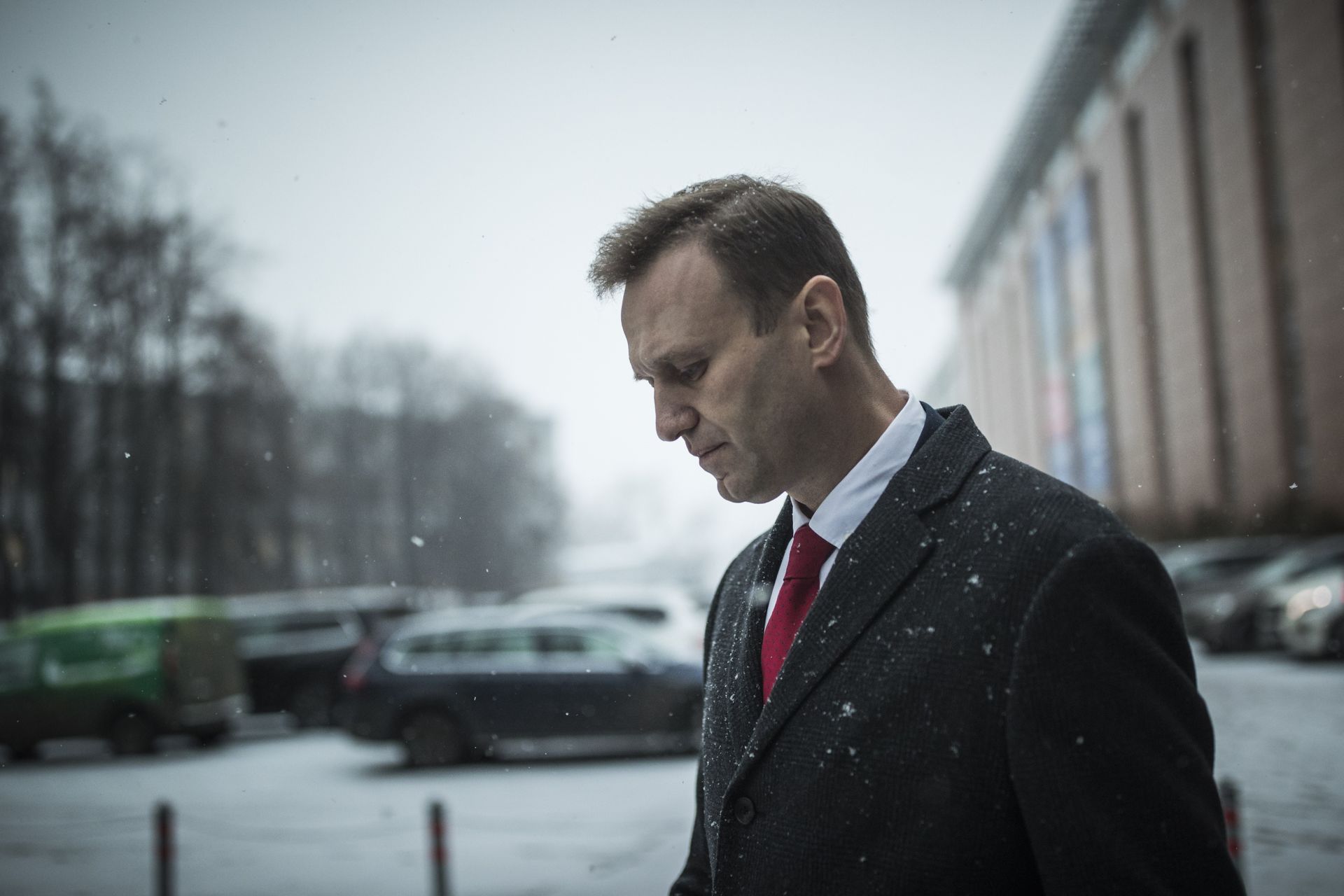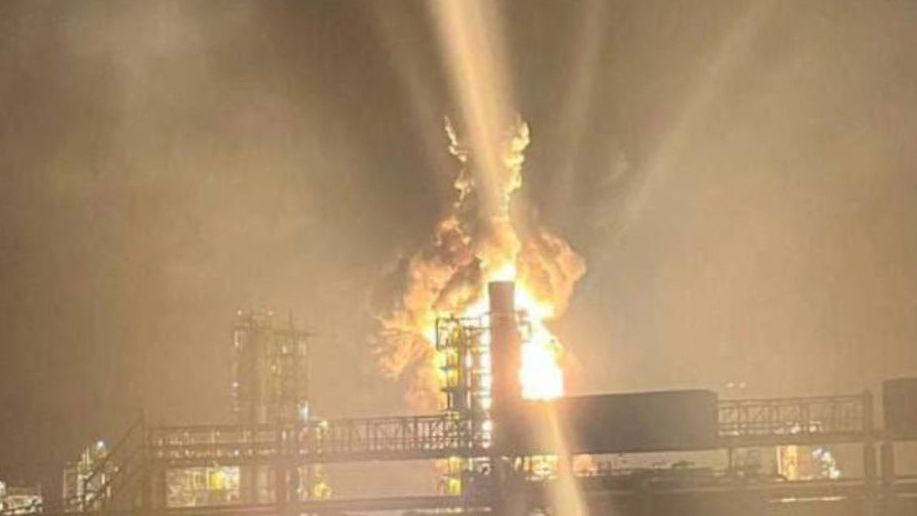What the resignation of technocrat Dmitry Kozak tells us about power in Russia
Vladimir Putin’s deputy chief of staff, who allegedly opposed an all-out war, resigns in a climate of secrecy.

Kremlin's Deputy Chief of Staff Dmitry Kozak gives a press conference at the Russian ambassador’s residence in Paris, France, on Jan. 26, 2022. (Léo Pierrard / AFP via Getty Images)
The Kremlin confirmed on Sept. 18 the resignation of Vladimir Putin's long-time close associate, the deputy head of his administration, Dmitry Kozak.
According to Peskov, Kozak is leaving of his own accord. His resignation has been accepted, with Sept. 19 set as Kozak's last day in office, Interfax reported, citing an undisclosed source.
The New York Times previously reported that Kozak had privately advised Putin against launching the war in Ukraine in 2022. He also reportedly warned of the dire consequences of a full-scale invasion, including fierce Ukrainian resistance.
This year, Kozak allegedly presented Putin with a plan aimed at ending the war and initiating domestic reforms.
His departure, although not unexpected, has raised questions on the future of Russia's war in Ukraine.
Not a friend of Putin's, but a close acquaintance
Kozak was born in Ukraine's Kirovohrad Oblast in 1958. As a young adult, he left to study in Soviet-era Leningrad and did not, throughout most of his career, maintain any professional relationship with his home country.
As many in Putin's close circle, Kozak got to know the future president of Russia by working with him at the city hall of Leningrad, now known as St. Petersburg — Putin's hometown — under the leadership of Anatoly Sobchak, the mayor of the city in the 1990s.
In the early 2000s, Kozak was brought to Moscow by Putin, who entrusted him with top-level positions in the Russian government.
"Both men are lawyers by training, and it seems that they had similar approaches to many things," said Andrey Pertsev, a journalist with Russian exiled outlet Meduza who specializes on Russian internal politics.

"While they were never close friends, some non-political comments by Putin, for instance, on how Kozak needed to quit smoking, make it look like their relationship went further than their professional obligations," Pertsev told the Kyiv Independent.
"Whatever the situation, Putin valued Kozak and definitely always wanted to find a (political) position where he would be useful," said Tatiana Stanovaya, an exiled Russian political scientist who works with the Carnegie Russia Eurasia Center.
An 'effective manager' entrusted with Ukraine
While Kozak had already been Russia's deputy prime minister since 2008, his role somewhat changed following Russia's annexation of Crimea, and the ensuing war that Moscow ignited in Ukraine's eastern Donetsk and Luhansk oblasts.
At that time, Kozak was tasked with overseeing the "integration" of Crimea into Russia, chiefly through infrastructural projects.
"This was largely a technical role, linked to construction and other similar topics, which he carried on from his previous task of overseeing preparations for the Winter Olympics in Sochi (in February 2014)," Pertsev said. "At that time, Putin's main man on Ukraine was Vladislav Surkov."
A flamboyant figure in the Russian establishment, Surkov, however, eventually fell in disgrace with the Russian president, helping Kozak's rise in the ranks.
"He was actually given a higher position than his predecessor, and was allowed to oversee multiple aspects of Russia's Ukraine policy," Pertsev said.
Kozak's rise in power came just before the start of the coronavirus pandemic, when Vladimir Putin fired his long-time ally Dmitry Medvedev, then prime minister, and replaced him with Mikhail Mishustin. Largely seen as a technocrat ready to "efficiently" administrate the country under instructions from the president, the new head of government refused to keep Kozak in his cabinet.
"Mishustin saw him as a relatively strong political figure," Pertsev explained. "This attitude was reinforced by the fact that (in Medvedev's government), Kozak was responsible for Russia's energy sector, which made him an even more influential figure."
Kozak was appointed as the Kremlin's deputy chief of staff and ended up having major diplomatic responsibilities.
"He was tasked with oversight of the Minsk process, and in general the process of so-called peaceful regulation of the war in Ukraine," before Russia's full-scale invasion in 2022, Stanovaya explained.
A technocrat, but also a critical figure
Kozak's slow but steady advancement in Russian power circles was abruptly put to a halt in 2022, when Putin launched Russia's full-scale invasion of Ukraine.
"Kozak might not have been a 'nice guy' who opposed the war, but he had this 'good manager' approach and was firmly convinced that the war, and especially western sanctions, would be a bad influence on the Russian economy," Pertsev said.
"He had the reputation of a very effective manager, known for often taking initiatives and proposing systemic reforms," Stanovaya said. "But he has always wanted to do too much, so his suggestions never worked out, there was never enough political will to put his ideas into practice."
Speculations about Kozak's critical position on the war in Ukraine are "exaggerated," Stanovaya argued. "He expressed some doubts about the war, but no more than that. His position on Ukraine was not the main reason for his removal."
Final disgrace
While Kozak ended up staying in his role, he was progressively stripped of his responsibilities. Over time, these were handed over to Sergey Kiriyenko, a rival figure in Putin's administration who was initially appointed to oversee Russian domestic politics.
"Kozak became a bit of a white crow over the past years, as he was one of the very few people who would still tell Putin if he saw problems (in his line of work)," Pertsev said. "He just didn't fit in anymore with what the Kremlin had become."

Kozak's departure is also just a "logical result of the end of the Minsk process (in 2022)," Stanovaya added. "He had been waiting for new opportunities (since then), but these did not come."
His departure from the Kremlin will change "nothing" with regards to Russia's war in Ukraine, Stanovaya argued. "Whatever his personal position, he could not contradict Putin on the war, no one in his circle can do this."
More than three years after the full-scale invasion, the last stroke at Kozak's political career ended up being Putin's proposal to appoint him as his official representative in Russia's Northwestern Federal District, which comprises St. Petersburg and much of northern Russia.
"Following the death of the head of Russia's Supreme Court (in July 2025), there was an opportunity for a re-shuffle" at the top levels, Stanovaya explained. "But Putin is very conservative about re-shuffles, and he ended up proposing to Kozak a position which did not meet his status."
"This was not a humiliation, but it was definitely a demotion," Pertsev said in turn. "This situation was not acceptable for him."
Following his departure from Putin's administration, Kozak is said to want to reorient his activities to the business sphere, and as such, terminate his 30-year-long career at the summits of Russian power.
Whatever the practical effects on Russia's governance, Kozak's resignation still marks the disappearance from government circles of one of the last figures who would dare to disagree with Putin.












